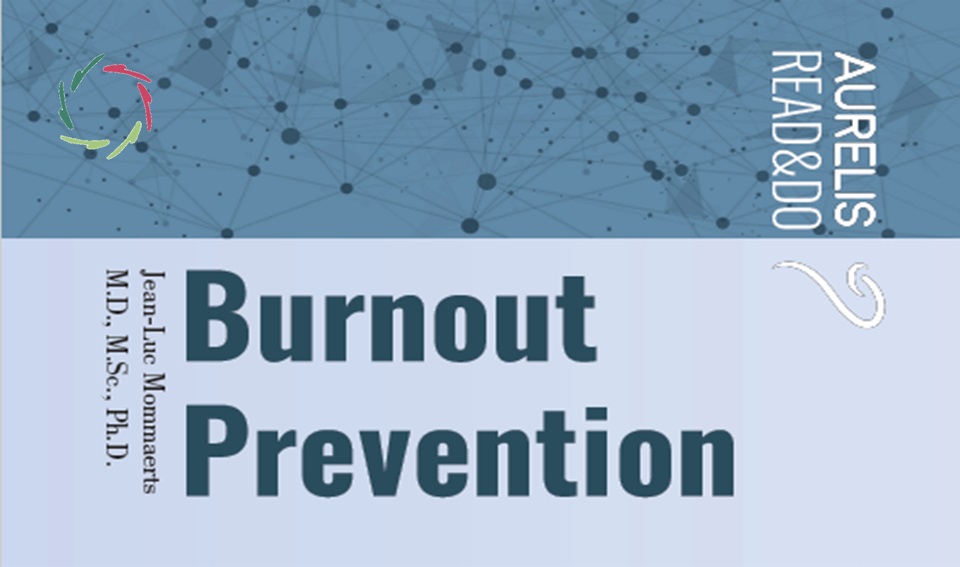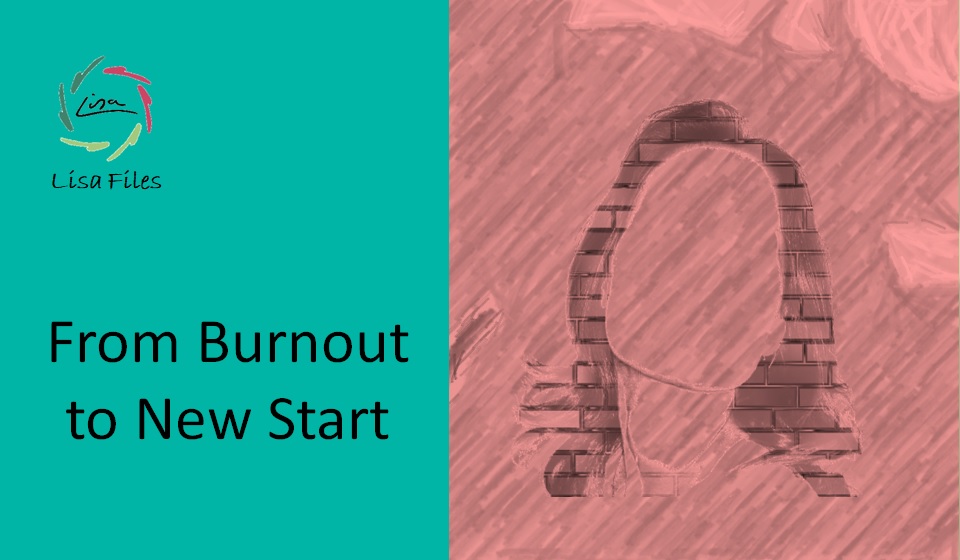Burnout Prevention – Read&Do

This is the foreword to my book ‘Burnout Prevention’ that you can find on Amazon (see menu).
Pandemic of burnout
For the last few years, we have been witnessing a pandemic of burnout. COVID will not make this go away. On the contrary, while taking away much attention from it, the impact on burnout will probably be quite negative. The two pandemics coalesce. We should brace for even more burnout post-corona. Already, we see a lot of psychological complications in people after their physical recovery from COVID. To others as well, living through these times brings lots of mental stress and post-traumatic stress symptoms. A higher chance on burnout comes with this.
Cultural lack of meaningfulness
Burnout is a cry for meaningfulness. Put another way, it is the result of a lack of meaningfulness. This is culturally apparent. In an ever more complex society and a search for rationalization, what is deeply meaningful tends to get less attention. It takes specific effort to reach this. People don’t have time or energy to make this effort. There is always so much to do that apparently cannot wait. ‘So much to do’ is the choice of individuals, but of course, they are under social pressure. Everybody flows along in that same river, pushing each other between the river banks and towards a promised land that may never be reached. Meanwhile, there is no attention to the surrounding landscape, no occasion to contemplate its beauty, no replenishment of human energy. Everything goes towards streaming as hard as possible.
Where does this cultural tendency come from? Complicated question. There is a self-enhancing factor at play. People look for meaning inside their continuous rush. Only, this way, they get further dissociated from it. So they try harder and harder with the paradoxical effect of getting even further away from where they could find it. It looks like a trap. It may also have started as a trap. With better means to conceptualize one’s environment – and even oneself – the immediate advantages are clear, but meanwhile, disadvantages at longer term are less clear, especially if they are more obscure from the start. A diminishment of meaningfulness is such a disadvantage. Its obscurity is the direct result of our ‘basic cognitive illusion’: we don’t see the seeing within ourselves. Our own source in our mind/brain is invisible. Thus, we have the illusion that it is either nonexistent or something magical. In both cases, we look right beyond who we are. But meaning comes from there. In combination with so much to do, we lose our own meaningfulness.
From distress to burnout
Both are lying very much on the same road. Distress – itself also a complex phenomenon – is a frequent precursor of burnout. One can see it is as the tension that comes from the fight for meaningfulness. A person may fight for a long time until becoming hopeless and energy depleted. Thus, a good way to handle stress is also preventive to burnout. See Read&Do Stressional Intelligence. In this book, I describe (di)stress as the tension between wanting-to and being-able-to. In wanting-to, there is always an aspect of meaning. In not being-able-to attain this, it’s also about the meaning of what cannot be attained. Thus, distress is the felt tension from not being able to attain the desired meaningfulness. If this tension gets too strong, it may sooner or later implode into burnout, either in one go or after several warnings.
Meaning = energy
Meaning is what motivates us. There is no motivation without meaning. So, there is no renewal of energy to accomplish things, at least not the things in which one has put energy before. With energy depletion comes burnout, a feeling of exhaustion (1). A lack of meaning also brings a lack of a feeling of fulfillment (2) and a feeling of alienation (3) from who one profoundly really is. In this enumeration of a triad, one can see the characteristics of burnout as meaning related. If people do not find their meaning, they do not find their energy. In the end, there is no point in going on. One can only search for a renewed source of meaningfulness. This is to be searched within. Burnout provides the mental and even physical environment to do so. Nevertheless, if one keeps fighting for so much to do, real meaning will be kept outside. In principle, this may go on forever.
Beyond burnout
Insight may help in getting beyond. Of course, action in the right direction should be taken upon this insight. Action can be taken at the individual and cultural level. At this moment, the basic cognitive illusion is preventing this at large scale. In the end, culture itself also gets hindered by many people on their path to burnout. We then live in a burnout society until we learn to know who we truly are. In another book (The Journey towards Compassionate A.I.), I call this the third wave in attention and life. This is a wave in which a synthesis is realized of conceptual thinking and subconceptual being. In other words: of constructive prose and meaningful poetry. Let’s hope we get there soon.


